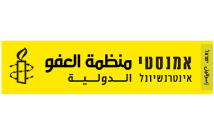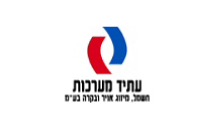Ministry of Finance's report: Stagnated productivity linked to entry of ultra-Orthodox and Arabs (?!)
Recently, we have been informed by the Ministry of Finance that the entry of Arabs and ultra-Orthodox into the labor market had led to a stagnation in productivity. According to a survey carried out by the Ministry of Finance's Chief Economist, since 2015 growth in productivity had stagnated in the Israeli business sector, linked predominantly, in the Ministry of Finance's view, to an increase of workers from minority populations lacking skills relevant to the labor market.
The Division of the Ministry of Finance's Chief Economist, in its weekly survey (beginning of October, 2017) determined that since 2015 productivity had stagnated in the Israeli business sector. The main reason given is that growth in employment had been concentrated on law paid and productivity branches and the key increase in workers in 2016 had originated from the ultra-Orthodox and Arab populations, with few skills relevant to the labor market.
Numerical data refers to the fact that in the past three years, the business sector has grown at an average rate of 3% which, despite the fact this is higher than internationally, is lower than the previous decade. Since 2015, all types of productivity have stagnated - worker productivity (output per worker in a unit of time), capital productivity (relationships between amount of capital invested and production) and overall productivity (efficient exploitation of all input in the production process). This followed the period 2004-2014 in which overall productivity grew at an average annual rate of 1.7%. Between 2015-2017 the growth rate was moderately negative.
The fact that in recent years productivity has stagnated in the Israeli business sector means that market growth has originated solely in greater employment and capital reserves.
In order to understand the reasons behind productivity stagnation in the business sector, the Ministry of Finance offers a number of reasons, and we will refer to each one individually.
Growth in low paid jobs and low skilled workers - in recent years more than two-thirds of jobs created were in branches with low wages and productivity. It is important to ask: What is the situation in the employment bureau - there are whole departments for academics, professionals who find it difficult to fit into organizations irrespective of their ethnic background, citizens with medium/high/very high skill and productivity levels.
Significant growth in areas belonging to the 6,000-9,000 NIS per month salary category: The most significant job growth in the labor market in 2016 was in the field of education with the addition of 17,000 jobs. Other striking growth was found in wholesale and retails trades and the field of automobile repairs, with 15,500 additional jobs as well as the construction trades with 11,800 additional jobs. The question that should be asked is: Can Arabs and the ultra-Orthodox only be teachers or car mechanics?
Change in labor force - in 2016 the largest growth in the working age population came from the ultra-Orthodox and Arab populations. The two groups constitute more than half the labor force population (employers and job seekers). "This fact directly affects productivity because it refers to population groups characterized by few skills relevant to the labor market" (translated from Hebrew). It is important to ask whether the following paradigm is correct for us: Arabs and ultra-Orthodox = low wage and productivity abilities??
Another objective reason given is linked to the fact that whilst in the current decade, investment has recovered after a relatively weak decade, the expectations that this recovery would contribute to productivity levels has not been realized. The high level of investment has not benefitted productivity, among others, because of the investment mix, in which growth has occurred in areas that contribute less to productivity.
The reality is that most investment in recent years has focused on home building and automobiles - components whose effect on productivity is low and indirect. Fewer investments have focused in recent years on components whose effect on productivity is high, such as research and development, machines, equipment and infrastructures. Some investment in recent years is expected to influence productivity only in future years.
It is important to remember what skills are wanted in the labor market: mainly diligence, desire and ability to learn, perseverance, reliability, ability to think, ability to perform.
According to the survey, Arabs and the ultra-Orthodox lack these skills. This is of course a mistaken perception. Training/learning/education take many months - skills such as the ability to think outside the box or emotional intelligence are gifts that are not acquired solely at university.
On the issue of required professional training - here one can take an example from the hi-tech field where investment included integrating members of the ultra-Orthodox community, which has proven itself. Leading hi-tech companies run profession training even for those who spent their whole life studying Gemara (even those without a matriculation), ultra-Orthodox women, etc.
Hence, the latest economic survey in fact reflects a cultural view held by institutional organizations: there is a need to change this paradigm and move from the paradigm of a multicultural pyramid to a different structure, a spiral that develops, reflects and symbolize 'cultural competence': within it, various populations enjoy real equal opportunities in light of their skills as human beings and as creative, contributing people.
מאמרים נוספים
ב"ה

















